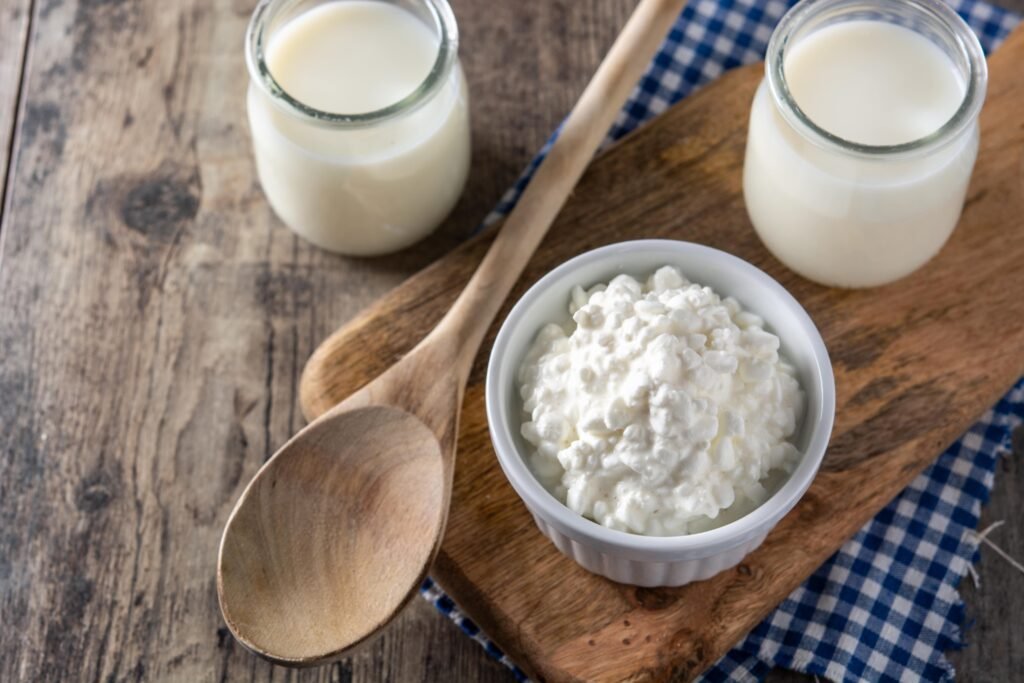Bloating and gas are common digestive issues that almost everyone experiences at some point in life. While they are rarely serious, they can cause discomfort, embarrassment, and even disrupt daily activities. Many people immediately reach for over-the-counter medications, but there are several effective home remedies for bloating and gas that can provide quick relief without side effects.
In this comprehensive guide, we’ll explore scientifically backed natural remedies, dietary tips, lifestyle changes, and soothing herbal solutions that help you manage and prevent bloating and gas. Whether you’re looking for quick fixes after a heavy meal or long-term strategies for a healthier gut, this article covers everything you need to know.
Table of Contents
1. What Causes Bloating and Gas?
Bloating usually happens when excess air or gas builds up in your digestive tract. This can result from:
- Swallowing air while eating or drinking
- Eating too quickly
- Consuming carbonated drinks
- High-fiber foods that ferment in the gut
- Imbalances in gut bacteria
- Food intolerances (like lactose or gluten)
- Hormonal changes
- Stress and anxiety
From a scientific perspective, intestinal gas is produced mainly by bacteria breaking down undigested carbohydrates. For some people, even healthy foods like beans, lentils, or cruciferous vegetables can cause excessive gas production.
2. Common Symptoms and When to Worry
Bloating and gas are often harmless, but they can show up in different ways depending on your digestion, eating habits, and overall health. Understanding the common symptoms of bloating and gas can help you identify whether your discomfort is just temporary—or if it may signal something more serious.
Everyday Symptoms of Gas and Bloating

Most people will recognize at least one of these symptoms:
- Abdominal Fullness or Tightness
- Your belly may feel stretched or swollen, almost like it’s filled with air.
- Many people describe it as a “ballooning” sensation, especially after eating.
- Visible Stomach Swelling
- Sometimes the belly actually expands and looks rounder than usual.
- Clothes may suddenly feel tight around the waist, even if you haven’t gained weight.
- Burping (Belching)
- Belching is one way the body expels excess swallowed air.
- Occasional burping after fizzy drinks or a big meal is normal, but constant burping can mean your stomach isn’t digesting food efficiently.
- Flatulence (Passing Gas)
- Everyone passes gas—anywhere from 14 to 23 times a day is considered normal.
- Excessive or foul-smelling gas, however, may indicate your gut bacteria are struggling with certain foods.
- Abdominal Cramps or Discomfort
- Gas buildup can cause sharp, cramp-like pains in the stomach.
- The discomfort often improves after passing gas or having a bowel movement.
- Gurgling or Rumbling Noises (Borborygmi)
- Those funny, loud digestive sounds are caused by gas and fluid moving through your intestines.
- They’re usually harmless but can be embarrassing in quiet settings.
When Is Bloating More Than Just Gas?
Most bloating episodes pass within a few hours, especially after digestion or using a simple home remedy. But sometimes, bloating may be a red flag symptom of a deeper issue. Seek medical advice if you experience:
- Persistent or Chronic Bloating
- If bloating happens almost daily and doesn’t improve with dietary changes, it could signal Irritable Bowel Syndrome (IBS), Small Intestinal Bacterial Overgrowth (SIBO), or food intolerances.
- Severe or Sudden Abdominal Pain
- Sharp, stabbing pains that don’t go away could indicate gallstones, appendicitis, or bowel obstruction—conditions that require urgent care.
- Unexplained Weight Loss
- Losing weight without trying while also feeling bloated can point to malabsorption, thyroid issues, or even gastrointestinal cancers.
- Blood in Stool or Black, Tarry Stools
- These symptoms should never be ignored, as they may indicate ulcers, colon polyps, or other serious gut conditions.
- Fever, Vomiting, or Severe Diarrhea
- When bloating is paired with these symptoms, it may suggest an infection or inflammatory bowel disease (IBD).
- Difficulty Swallowing or Early Fullness
- If you feel full after just a few bites or struggle to swallow, it could indicate a problem in the upper digestive tract.
3. Top Home Remedies for Bloating and Gas
When bloating strikes, the first instinct for many is to reach for antacids or over-the-counter gas relief tablets. While these can help, they often provide only temporary relief and don’t address the root cause. Thankfully, there are plenty of natural home remedies for bloating and gas that work gently with your body, improve digestion, and prevent future discomfort.
Below are the most effective remedies—supported by scientific research and trusted by generations of home healers.
Herbal Teas for Bloating Relief

Herbal teas are one of the simplest and most effective natural remedies for gas and bloating. Warm liquids relax the digestive tract, while specific herbs contain compounds that reduce inflammation and help trapped gas escape.
Best Herbal Teas for Gas and Bloating:
- Peppermint Tea
- Active compound menthol relaxes the digestive tract muscles.
- Clinical studies show peppermint oil helps with Irritable Bowel Syndrome (IBS) symptoms, including bloating and gas.
- How to use: Steep 1 teaspoon dried peppermint leaves (or 1 tea bag) in hot water for 10 minutes. Sip slowly after meals.
- Ginger Tea
- Contains gingerol, a powerful anti-inflammatory compound.
- Stimulates saliva, bile, and gastric enzymes—helping food move more smoothly through your gut.
- How to use: Simmer 3–4 thin slices of fresh ginger in hot water for 5 minutes. Add lemon or honey if desired.
- Fennel Seed Tea
- Acts as a natural carminative, meaning it prevents gas formation.
- Traditional remedies use fennel after meals to settle digestion.
- How to use: Crush 1 teaspoon fennel seeds, steep in boiling water for 5–7 minutes, strain, and drink warm.
- Chamomile Tea
- Soothes the stomach and reduces stress-related bloating.
- Its mild sedative effect can also help if bloating interferes with sleep.
- How to use: Steep 1 tablespoon dried chamomile flowers (or 1 tea bag) for 10 minutes before bedtime.
Pro Tip: Replace your after-dinner coffee with a calming cup of herbal tea. Coffee can sometimes worsen bloating, while herbal tea helps reduce it.
Probiotics and Fermented Foods

A balanced gut microbiome is essential for preventing excessive gas. When the wrong bacteria dominate your intestines, food ferments poorly, leading to bloating.
Probiotic Foods That Reduce Gas:
- Yogurt with live cultures
- Kefir (fermented milk drink)
- Sauerkraut
- Kimchi
- Miso
- Kombucha
Tip: Start small—just 1–2 tablespoons of fermented food daily—since introducing too many probiotics at once can temporarily cause more gas.
Supplements:
If food sources aren’t enough, probiotic supplements containing strains like Lactobacillus acidophilus and Bifidobacterium lactis may help restore gut balance.
📊 Science says: A 2019 review in the Journal of Neurogastroenterology and Motility found that probiotics significantly reduced bloating in people with IBS.
Heat Therapy
When gas pain feels sharp and cramp-like, applying heat to the abdomen can bring quick relief.
- Heat relaxes tight intestinal muscles, helping trapped gas move along.
- It also improves circulation, reducing the “pressure balloon” feeling.
How to use heat for bloating:
- Place a hot water bottle or heating pad over your stomach for 15–20 minutes.
- Take a warm shower or soak in a hot bath for whole-body relaxation.
Personal Tip: If bloating wakes you up at night, a heating pad often helps you fall back asleep faster.
Gentle Exercise
Movement is medicine for digestion. A sedentary lifestyle slows gut motility, meaning food takes longer to move through your system, leading to gas buildup.
Best Exercises for Gas Relief:

- Walking: A simple 15-minute walk after meals encourages digestion.
- Yoga Poses:
- Pawanmuktasana (Wind-Relieving Pose) – designed specifically for gas relief.
- Child’s Pose – gently massages the abdomen.
- Cat-Cow Stretch – improves circulation and digestion.
- Deep Breathing: Diaphragmatic breathing stimulates the vagus nerve, promoting healthy digestion.
Science says: A study in Applied Physiology, Nutrition, and Metabolism found that post-meal walking significantly reduced bloating in participants compared to sitting still.
Hydration Hacks
Dehydration is a hidden cause of bloating. Without enough water, the body struggles to process fiber, leading to constipation and gas buildup.
Hydration tips for better digestion:
- Drink at least 8–10 glasses of water daily.
- Start your morning with warm lemon water—it jumpstarts digestion and detoxification.
- Avoid carbonated beverages, which add extra gas to the stomach.
- Try infused water with cucumber, ginger, or mint for added digestive benefits.
Pro Tip: Instead of gulping water with meals, sip slowly throughout the day to prevent swallowing excess air.
Kitchen Spices and Quick Fixes
Sometimes the best remedies are already in your pantry. Many spices used in traditional medicine help prevent gas formation and improve digestion.
- Carom Seeds (Ajwain): Chewing half a teaspoon with a pinch of salt is a classic Ayurvedic remedy.
- Asafoetida (Hing): Dissolve a pinch in warm water—it acts as a natural anti-gas agent.
- Cumin Seeds: Boil 1 teaspoon in water, cool slightly, and sip as a digestive tonic.
Restorative Practices
Stress and poor sleep can worsen bloating. Practicing mind-body remedies like meditation, abdominal massage, or lying on your left side after eating helps gas move naturally through the intestines.
4. Best Foods for Reducing Gas and Bloating
Food is one of the most powerful tools for preventing digestive discomfort. While certain ingredients are notorious for causing gas, others work like natural medicine, calming the stomach and supporting smoother digestion. If you want to reduce bloating naturally, focus on foods that hydrate the body, provide gentle fiber, or contain enzymes and probiotics that aid the breakdown of food.
Fresh Fruits for a Light Stomach
Some fruits are especially good at easing digestion. Bananas are high in potassium, which helps balance sodium and prevent water retention, a hidden cause of belly swelling. Their soluble fiber also keeps bowel movements regular, reducing constipation-related bloating. Pineapple and papaya are tropical stars when it comes to gas relief—they contain bromelain and papain, two natural enzymes that break down proteins and prevent food from fermenting in the gut. Eating a few chunks of pineapple after a heavy meal or starting the morning with papaya can make digestion much smoother.
Hydrating Choices That Flush Out Bloat
Dehydration is often overlooked when it comes to bloating, but it’s one of the biggest culprits. That’s why cucumbers and lemon water are so effective. Cucumbers are more than 90% water and deliver minerals that help the body release excess sodium. Adding cucumber slices to your water or enjoying them in salads can reduce puffiness from the inside out. Similarly, squeezing fresh lemon into warm water first thing in the morning helps stimulate digestive juices and acts as a natural, gentle detoxifier.
Fiber That’s Easy on Digestion
Not all fiber is created equal—some sources cause more gas than they solve. Oats are one of the best choices because their soluble fiber (beta-glucan) feeds good gut bacteria without triggering excessive fermentation. A warm bowl of oatmeal topped with banana or papaya is both filling and easy on the stomach, making it a smart breakfast for people prone to bloating.
Probiotic-Rich Foods for Gut Balance
Bloating often comes from imbalances in gut bacteria. That’s where yogurt with live cultures comes in. Unlike milk or cheese, which may cause gas for lactose-sensitive individuals, probiotic yogurt introduces healthy bacteria like Lactobacillus and Bifidobacterium that improve digestion and reduce bloating. Choosing plain, unsweetened yogurt is best, since added sugars can sometimes worsen gas.
Natural Soothers from the Kitchen
Finally, certain natural ingredients double as everyday remedies. Ginger is one of the most reliable options—it relaxes the digestive tract, speeds up stomach emptying, and reduces inflammation. A little grated ginger in tea, soups, or warm water with honey works wonders for bloating relief.
5. Foods to Avoid When You’re Bloated
Just as some foods naturally calm the stomach, others are more likely to cause gas, water retention, or digestive discomfort. If you often struggle with bloating, being mindful of these common triggers can make a big difference. Avoiding or limiting them, especially during flare-ups, can help you feel lighter and more comfortable.
Gas-Producing Vegetables
While vegetables are essential for good health, certain ones are harder to digest and may lead to gas buildup. Cruciferous vegetables such as broccoli, cauliflower, cabbage, and Brussels sprouts contain raffinose, a type of carbohydrate that ferments in the gut and produces gas. They’re packed with nutrients, so you don’t need to cut them out entirely—but steaming them well or eating them in small portions may reduce their bloating effect.
Legumes and Pulses
Beans, lentils, and chickpeas are known for being high in fiber and plant-based protein, but they also contain oligosaccharides, a type of carbohydrate that the body struggles to digest without producing gas. Soaking beans overnight and cooking them thoroughly can make them easier on the stomach, but during periods of bloating, it’s best to keep portions small or opt for alternatives like mung beans or lentils, which are gentler on digestion.
Dairy Products (If You’re Sensitive)
For people with lactose intolerance, foods like milk, cheese, and ice cream can quickly lead to bloating, gas, and cramping. The body lacks enough lactase enzyme to break down lactose, leaving it to ferment in the gut. If dairy tends to bother you, choose lactose-free milk or switch to plant-based alternatives such as almond, oat, or coconut milk. Yogurt with live cultures is often easier to tolerate because probiotics help digest lactose.
Carbonated Drinks
Sodas, sparkling water, and other fizzy beverages introduce extra carbon dioxide gas directly into your stomach. This trapped air can make your belly feel swollen and tight, even if you haven’t overeaten. Many soft drinks also contain artificial sweeteners or high fructose corn syrup, which can worsen bloating. Replacing carbonated drinks with plain water, herbal teas, or infused water is a simple way to prevent unnecessary gas buildup.
Artificial Sweeteners
Sugar substitutes like sorbitol, mannitol, and xylitol, often found in sugar-free gum, candies, and diet products, are poorly absorbed by the body. As they move into the large intestine, they ferment and cause gas. Even small amounts can trigger bloating in sensitive individuals. If you’re trying to cut back on sugar, stick to natural options like a drizzle of honey or a small amount of maple syrup instead.
Processed and Salty Foods
Highly processed snacks, fast foods, and packaged meals often contain excess sodium, which encourages water retention and makes bloating worse. They also tend to be low in fiber, slowing digestion. Cutting back on processed foods not only reduces bloating but also supports overall gut health. Cooking fresh meals at home with whole ingredients is a far better choice.
Greasy or Fried Foods
Heavy, oily meals are slow to digest and can leave you with that uncomfortable, “brick in the stomach” feeling. Fat delays stomach emptying, which increases the chances of gas buildup. While the occasional treat is fine, regularly eating fried or greasy foods can worsen bloating and contribute to digestive sluggishness. Lighter cooking methods like steaming, baking, or grilling are easier on the digestive system.
Ayurvedic and Traditional Medicine Approaches
Ayurveda suggests balancing the Vata dosha for bloating. Remedies include:
- Drinking ajwain (carom seed) water
- Consuming hing (asafoetida) with warm water
- Practicing oil massage (Abhyanga) to relax the stomach muscles
7. Breathing Techniques and Yoga for Gas Relief
Deep breathing stimulates the diaphragm and aids digestion. Techniques like diaphragmatic breathing can reduce bloating.
Yoga poses that help:
- Seated Forward Bend (Paschimottanasana)
- Bridge Pose
- Wind-Relieving Pose
8. Lifestyle Habits That Prevent Bloating
- Eat smaller, frequent meals
- Chew food thoroughly
- Avoid chewing gum and drinking through straws (they increase swallowed air)
- Manage stress with meditation
- Maintain regular bowel movements with fiber and hydration
Final Thoughts
Bloating and gas are uncomfortable but manageable with simple lifestyle changes, natural remedies, and mindful eating habits. Instead of relying solely on medication, try incorporating herbal teas, probiotics, yoga, and smart food choices into your daily routine.
Your gut health is central to your overall well-being. Listen to your body, make adjustments gradually, and you’ll soon notice the difference.
